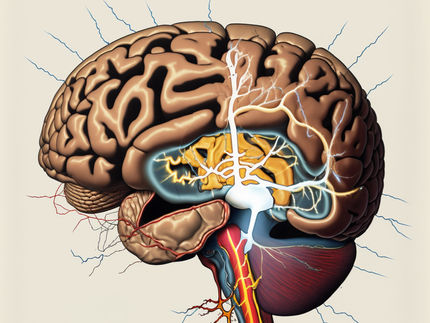Does television really make you stupid?
Watching TV - Why television is better than its reputation
Does television make you stupid? Dr. Matthias Nürnberger from the Department of Neurology at Jena University Hospital investigated this in a prospective study. The results showed that excessive television consumption can even have a positive effect on both visual information processing and motor learning ability, in some cases significantly so. Television is therefore better than its reputation. The study was published in the journal "Scientific Reports".
If you watch a lot of television, you become stupid - a phrase that many people are familiar with. Television is one of Europeans' favorite leisure activities; on average, they watch around 210 minutes of TV per day, probably even more. "Most people underestimate how much television they actually watch. Or they don't want to give an honest answer in surveys because television generally has a bad reputation," explains Dr. Matthias Nürnberger, neurologist and senior physician at the Emergency Center at Jena University Hospital (UKJ). Numerous studies attribute negative effects to excessive TV consumption; watching a lot of TV is also said to lead to cognitive deficits. However, these are almost exclusively retrospective studies. This means that these characteristics are explained in retrospect by watching too much television. But does television really make you stupid?
"We already suspected that television is better for our brains than its reputation," says Nürnberger. "But there were no prospective studies." Nürnberger and his research team changed that. In a randomized, controlled intervention study, they investigated whether intensive visual stimulation through television can improve our processing of visual information, i.e. our visual short-term memory, and our motor learning performance - i.e. the ability to learn certain movement patterns through repeated execution. To do this, they had 74 young adults between the ages of 20 and 30 spend five days in a controlled environment either watching television excessively, i.e. eight hours a day, or not watching television at all. During the experiment, both groups completed a course in typing on the keyboard using the 10-finger system - a skill they had not previously mastered and which combines motor skills with visual information processing. The program included daily tests of learning progress as well as pre- and post-examinations and MRI scans of the brain. The results surprised even the research team in their clarity: the TV group performed better in all tests than the control group without TV consumption, in some cases even significantly so. The effects were directly detectable in the brain. "The brain is actually considered to be cognitively trained from a certain age. The maximum number of synapses is reached at around 25 years of age and it is very difficult to change this upper limit. But, as our study suggests, it is still possible to achieve an improvement with a lot of visual stimulation," reports Nürnberger.
In concrete terms, the results were as follows
- Motor learning: The TV group performed significantly better than the control group in the motor learning task, i.e. typing on the keyboard using the 10-finger system. For this purpose, the learning progress in typing was measured daily during the stay. The TV group performed 10 to 15 percent better.
- Visual short-term memory: The TV group showed an increased ability for short-term visual perception, 25 percent better than the control group without TV consumption. To measure this, the participants completed tests on the perception of visual information before and after the experiment. They were shown a series of red and/or blue letters on a display and had to report letters in one of the two colors according to different requirements.
- Linkage in the brain: The TV group showed an increased linkage between the visual and motor learning networks in the brain. For this purpose, functional MRI images of the brain in a resting state were taken of all participants before and after the experiment. The TV group also showed an increase in volume in the left hemisphere of the brain, specifically in the entorhinal cortex, which contributes to the processing of visual information, i.e. visual short-term memory.
"Whether these effects are permanent and the comparative impact of an average length of television viewing still needs to be investigated," says Nürnberger. He and his team are currently investigating how TV consumption affects cognitive performance in older participants. "A lot of research has not yet been done. It was important to us to conduct a prospective study on the effects of television consumption for the first time and not to attribute cognitive deficits to television in retrospect. However, Nürnberger does not recommend continuous television viewing: "Television doesn't just have an effect on the brain. People who only sit in front of the TV generally don't get much exercise and also limit their social life. In this respect: Television may be better than its reputation, but you still shouldn't overdo it."
Note: This article has been translated using a computer system without human intervention. LUMITOS offers these automatic translations to present a wider range of current news. Since this article has been translated with automatic translation, it is possible that it contains errors in vocabulary, syntax or grammar. The original article in German can be found here.

























































